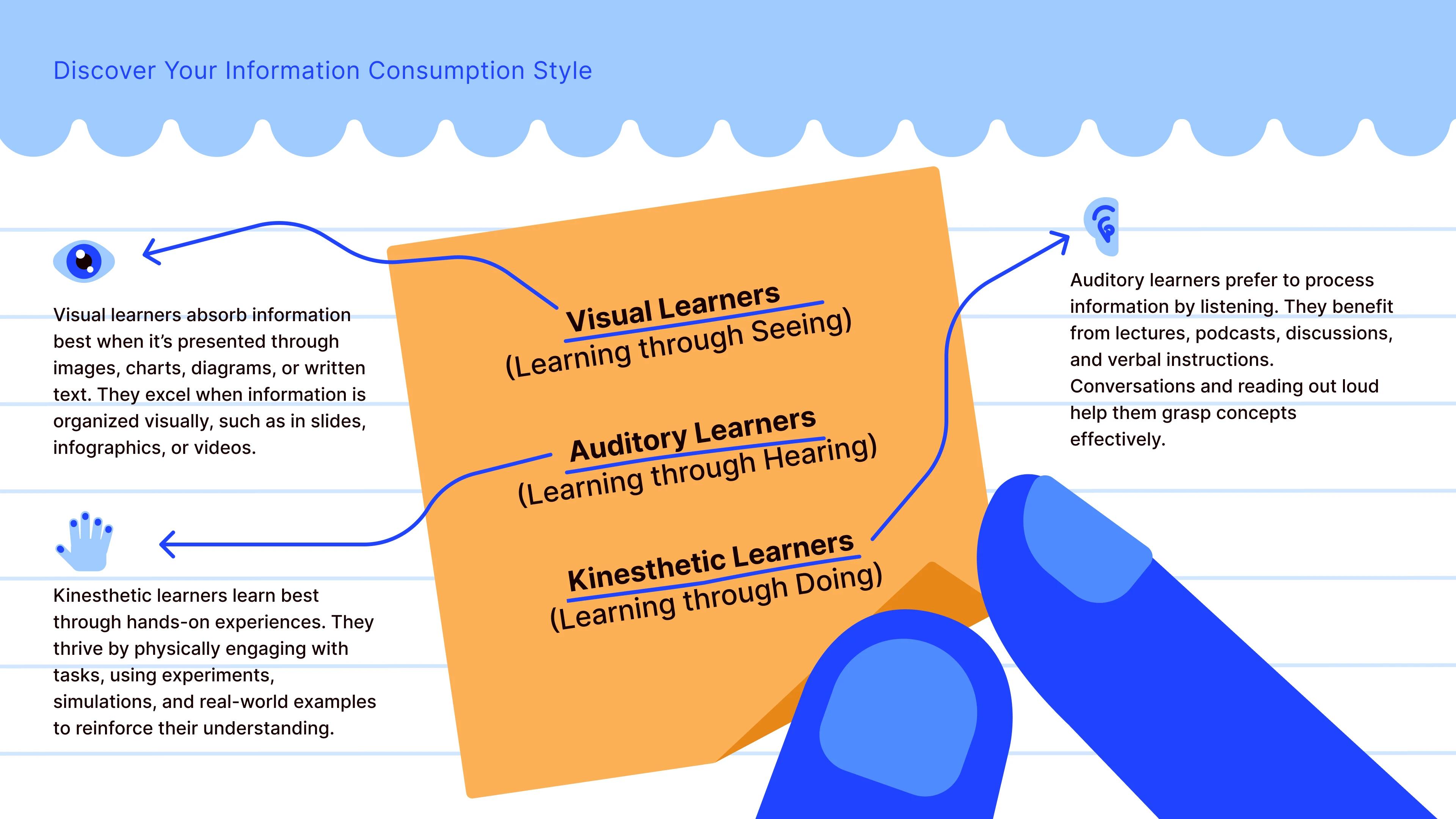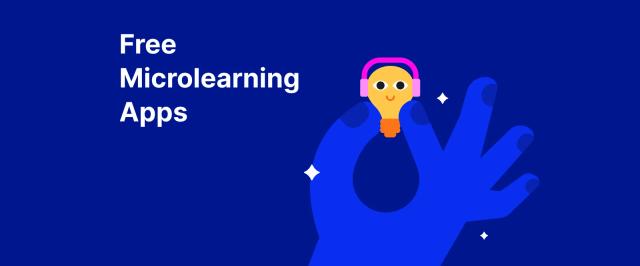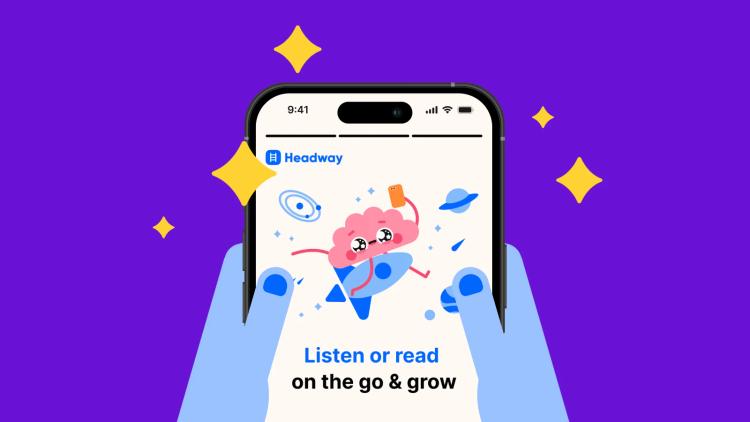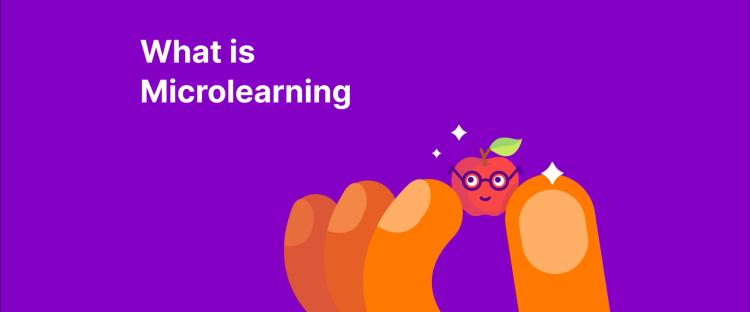Ever sit down to study and end up staring at your phone for an hour instead?
Mind wandering kicks in when you're trying to focus on school work, especially when studying feels boring compared to everything else you could be doing. If you want to know how to focus on school work, you need a study space without distractions and a study routine you can stick with.
Daniel Goleman writes in 'Focus: The Hidden Driver of Excellence' that attention improves with practice. Setting up the right environment and building habits that align with how your brain works make studying easier. Building a study routine means testing what works for you.
In the Headway app, you can access 15-minute book summaries on productivity, focus techniques, and learning strategies from researchers who study how students concentrate and retain information. You get the insights without reading full books,
📘 Download Headway and start improving how you study!
Quick answer: How to focus on school work
Sleep enough, eat well, and move your body. Aim for 7–9 hours of sleep per night, eat fish and blueberries for brain function, drink water while studying, and exercise to get more oxygen flowing to your brain.
Find a quiet spot with good lighting and make it your study area. Use a chair that supports your back properly, keep your desk organized, and only use this space for studying so your brain associates it with work.
Work in 25-minute blocks with 5-minute breaks between them. After four blocks, take a longer break for 15–30 minutes. Your brain needs rest periods to process information, not just nonstop studying.
What is focus, and why is it difficult?
First things first, let's talk about what focus actually is, and understand why it can be so hard to master.
To break it down, focus is the ability to concentrate your attention or mental effort on a specific task while ignoring other distractions. Achieving focus is often more demanding than it appears due to the many distractions of daily life — from technological interruptions, such as notifications from social media platforms and video games, to environmental factors like noise or activity around you.
Additionally, stress and anxiety about school work and endless to-do lists can significantly affect your ability to focus. Physical factors, such as lack of sleep or poor nutrition, also play critical roles in reducing mental stamina for concentration.
How to focus on school work: It's time to take action!
So, what can you do about this? Understanding your learning style is a beneficial first step. Your learning style is how you absorb, process, understand, and retain information. Everyone has a slightly different style, but some of the most common ones include visual (learning through seeing), auditory (learning through hearing), and kinesthetic (learning through doing).

When you know which of these groups you fit into best, you can tailor your study methods accordingly. For instance, if you're a visual learner, you might find it helpful to use color-coded notes or diagrams. If you're more of an auditory learner, you might benefit from listening to recordings or discussing material with peers.
Perhaps you fit into the kinesthetic learning group; in that case, you could incorporate more hands-on activities or experiments into your study routine. By aligning your study habits with your personal learning preferences, you can not only boost your concentration but also make learning more enjoyable.
We should also mention that some conditions make focus even harder. For example, ADHD. If you feel that you may be affected, it's a good idea to speak to a professional for an assessment. There are many treatment and management methods available, and you don't need to struggle alone.
📘 Get Headway and access book summaries on productivity and study tips.
1) Creating the optimal study room
A key step in learning how to focus on school work is to create the right environment and stick to healthy habits. The two of these together can significantly boost your focus and cognitive function.
Let's delve into some helpful strategies to enhance your study sessions, starting with your health first.
2) The importance of sleep
Quality sleep is crucial for brain health. It helps consolidate memory and clear out brain toxins. While everyone's a little different, you should aim for 7-9 hours of sleep per night to ensure your brain is rested and ready to absorb new information.

It's helpful to go to bed at the same time every night and set your alarm for the same time every morning. Avoid anything too stimulating before bed, such as loud music, games, screen time, and adrenaline-pumping movies. It's also important to avoid heavy meals before bed. Otherwise, you'll find yourself awake for several extra hours.
In his bestseller 'The Sleep Solution,' W. Chris Winter offers some useful hacks. You can read a summary in the Headway library.
"Sleep is not the absence of wakefulness. In other words, sleep is not a light switch in your brain that is either on or off. Your body is doing amazing things at night while you sleep."
3) Let's talk nutrition
Your brain needs the right fuel to perform at its best. Foods and healthy snacks rich in omega-3 fatty acids, antioxidants, and fiber have been shown to boost brain health and concentration. Here are some brain-boosting foods to add to your diet:
Fish: Rich in omega-3 fatty acids that are vital for brain function and development. Examples include salmon, trout, and sardines.
Nuts and seeds: These are good sources of the antioxidant vitamin E, which protects cells from oxidative stress caused by free radicals.
Blueberries: Known for their anti-inflammatory properties and ability to increase synaptic plasticity, which helps your brain cells form new connections.
Dark chocolate: Contains flavonoids, caffeine, and antioxidants. It promotes brain plasticity and supports learning and memory.
Does this mean you can't have a takeaway occasionally? Of course not. It just means that you should eat everything in moderation, ensuring that you get plenty of healthy fruits and vegetables in your daily diet. Additionally, make sure you drink plenty of water to stay hydrated. Keeping a refillable water bottle beside you is a great way to remind yourself to keep drinking.
In 'How Not to Die,' Michael Greger gives fascinating insights into nutrition and how it can help prevent certain illnesses, many of which affect focus.
"The best way to minimize your exposure to industrial toxins may be to eat as low as possible on the food chain, a plant-based diet."
📘 Stop letting social media wreck your study time — download Headway and learn how to concentrate!
4) Move your body more
Regular physical activity increases blood flow to the brain, which aids in maintaining focus and sharpens alertness during your homework assignments. Even a short walk or a few stretching exercises during study breaks can make a substantial difference in your concentration levels.
It's very easy to sit on the sofa and use electronic devices, assuming that they're useful in other ways, but there's no replacement for exercise. In particular, cardiovascular exercise increases oxygen delivery to the brain, reducing brain fog and fatigue.

Exercise also stimulates the production of neurotransmitters, such as endorphins, which help prioritize brain function and improve mood.
5) Setting up your study space
The place you choose to study and do your hard work is very important. A cluttered, stressful workspace full of distractions will slow you down and make you procrastinate. However, a well-designed, organized spot will have the opposite effect.
Here are a few tips to optimize your study space:
Choose a quiet spot: To minimize distractions and enhance focus, choose a dedicated study area.
Proper lighting: Ensure your study area is well-lit, preferably with natural light, to reduce eye strain and keep you alert.
Ergonomics: You won't be able to concentrate if you're uncomfortable. Use comfortable, supportive seating and keep your setup ergonomic to prevent discomfort during long study sessions.
Eight techniques to stay focused on your school work (2026)
Now that you know how optimal focus can help you hit deadlines and avoid procrastination, let's talk about some useful techniques for staying focused no matter what work you need to do.
📘 Download Headway and replace distracted homework sessions with study techniques!
1. Use the Pomodoro technique
The Pomodoro Technique is a popular and very easy time management technique. The unique thing about this method is that it forces you to take regular breaks. You might think that taking breaks is a counterproductive thing to do, but taking time away from your studies actually helps you focus better than trying to push your brain too far all at once.
To perform the Pomodoro Technique, you simply break your work into intervals, usually 25 minutes, separated by a five-minute break. Each interval, known as a Pomodoro, keeps your brain fresh and focused. After four Pomodoros, take a longer break of about 15-30 minutes to recharge.
In his bestselling book 'Stolen Focus,' Johann Hari discusses why we can't focus, and one of the main reasons is tiredness. If you don't take regular breaks, your brain will become fatigued. He talks about the vital importance of rest and short breaks. By doing so, you'll notice a world of difference in your ability to take on board new information.
"We live in a culture that is constantly amping us up with stress and stimulation."
2. Time blocking
Schedule specific blocks of time for different tasks or subjects, allowing you to work in manageable steps. This method helps you manage your day more effectively by dedicating set periods to studying, breaks, and other activities. It prevents task overrun and keeps you from feeling overwhelmed.
In his bestselling book, 'Free to Focus,' Michael Hyatt talks about taking a moment to consider which tasks you really need to do and which don't contribute toward your academic goals. Cutting out unnecessary tasks and time blocking the ones that matter keeps you focused and allows for more meaningful study sessions.

Additionally, time blocks should be treated as non-negotiable and should never be canceled unless it's a dire emergency. In this case, your math homework is vital!
"Productivity is not about getting more things done; it's about getting the right things done."
3. Set clear goals
Before you start each study session, set specific, achievable goals related directly to the things you want to achieve. For example, instead of a vague "I want to study chemistry," opt for "I will complete ten chemistry practice questions."
This clarity can increase your motivation and sense of achievement. It can also help avoid distraction because you're not focusing on a huge task. A smaller task is much easier to complete, and it stops you from wandering into the unproductive land of multitasking.
4. Active learning
Rather than simply reading and trying to absorb information, try engaging with it more actively in your study spot.
To do this, you can ask questions, complete practice problems, and teach the content to another person. Active participation helps retain information more effectively than passive reading or listening. Plus, it's more fun, and learning should certainly be fun.
You can also use tools such as flashcards, note taking, mind maps, or summary apps to enhance your revision sessions. These tools can simplify complex information and make your study time more productive and interactive.
5. Prioritization
Use techniques such as the Eisenhower Box to prioritize tasks by urgency and importance. It's also a good idea to tackle high-priority assignments first to ensure you meet deadlines and keep stress levels low.
In 'Make Time,' Jake Knapp and John Zeratsky explain how prioritizing sets the tone for your day. It should be the center of your attention and something you focus on with total concentration. Everything else can wait. After all, if this is your priority, everything else is second in line. They also suggest reflecting at the end of every day and considering what went well and what could have been improved. That way, you always make tomorrow even better.
"You only waste time if you're not intentional about how you spend it."
📘 Try Headway and replace distracted homework sessions with study techniques!
6. Implement book summaries in time blocks
If you don't have the time to read a full book, book summaries are an ideal option. At Headway, we have summaries of thousands of non-fiction books, including many focused on how to focus and study. The big advantage here is that you can absorb a large amount of information quickly, so you can dig deeper into subjects that you need to learn more about.
As you use the time blocking technique, make one of those blocks your time to read a summary of a book. Our summaries take just 15 minutes to read or listen to, giving you key insights on the most important points. In fact, in our library, you can read summaries of all the books mentioned in this article, giving you plenty of armor against distraction.

7. Mindfulness and meditation
Finally, it's very useful to begin or end your day with mindfulness exercises or meditation to improve concentration, reduce stress, and enhance overall mental health. Even short periods of meditation can improve your focus and attention span. You could also create a relaxation playlist to play in the background during your activities.
In 'Focus: The Hidden Driver of Excellence,' Daniel Goleman discusses three types of focus and how meditation and mindfulness can help with all of them. They are inner, outer, and other focus. Inner focus is about self-awareness and regulating your emotions; outer focus is about seeing the bigger picture around you. Finally, another focus is on being aware of others' thoughts and feelings.
All of these can be improved by cognitive control, or the ability to prioritize your long-term goals over the impulse to act in the moment. Mindfulness and meditation are excellent tools for exactly that.
"Mindfulness helps especially for those of us for whom every setback, hurt or disappointment creates endless cascades of rumination."
Study smarter, not harder, with the Headway app!
Learning how to focus on school work means setting up a proper study space, sleeping enough, eating right, and using techniques like Pomodoro and time blocking. High school students struggle with this because social media and distractions are everywhere, but these strategies work when you stick with them.
How can Headway assist with it? Our app offers book summaries on focus, memory improvement, productivity, and learning strategies so you can speed up your learning process without reading full books. You get expert advice quickly and can share it with family members who want to improve their focus, too.
📘 Download Headway and start studying more efficiently!
FAQs on how to focus on school
Why can't I focus on schoolwork?
It's probably a combination of several factors - a shortage of distractions, stress, lack of sleep, or simply a lack of motivation. Your brain will perform its best work with a little rest, focus, and quiet. Try breaking up your study time into smaller bits and tuning out some distractions.
Is it better to study at night or morning?
It really depends on when you can concentrate better. Many people feel sharp and focused in the morning, but others work best at night. You just have to find your "golden hours" when you are more awake and use those to do your studying. Sleep is important too, so listen to your body.
How do I train my brain to focus?
Improving focus takes practice. Begin by reducing distractions and employing techniques such as mindfulness or brief periods of focused study. Regular exercise, getting enough sleep, and staying organized also contribute to maximizing your brain power. The more you practice, the easier it gets to maintain that focus.
How can I study 10x faster?
Studying quicker doesn't mean you are actually rushing — hopefully, you'll actually be studying more effectively. In addition to using active learning strategies like summarizing, quizzing yourself, and spaced repetition, keeping a consistent study space and taking regular breaks will also be helpful in studying effectively. The more you engage, the quicker you will learn.
What music do Harvard students listen to?
Harvard students have a wide range of sound preferences. However, many of them will choose instrumental or lo-fi beats when studying to keep focused and engaged. Ultimately, it comes down to personal preference: some may enjoy soft sounds, while others prefer something with a bit more energy.










